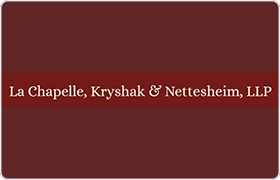Plover Real Estate Other Lawyer, Wisconsin
Sponsored Law Firm
-
 x
x

Click For More Info:
-
La Chapelle, Kryshak & Nettesheim, LLP
262 W Grand Ave Wisconsin Rapids WI 54495» view mapReal Estate Law Passionate and Dedicated Attorneys
The law firm of La Chapelle, Kryshak & Nettesheim, LLP, has provided legal services to the people of central Wisconsin for over a century.
800-886-1251
Includes: Commercial Leasing, Commercial Real Estate, Condominiums, Conveyancing, Housing & Urban Development, Premises Liability, Residential Real Estate, Title Insurance
Warning! No lawyers found in this specified area.
 Nicholas Abts Wisconsin Rapids, WI
Nicholas Abts Wisconsin Rapids, WI AboutLa Chapelle, Kryshak & Nettesheim, LLP
AboutLa Chapelle, Kryshak & Nettesheim, LLP Practice AreasExpertise
Practice AreasExpertise
